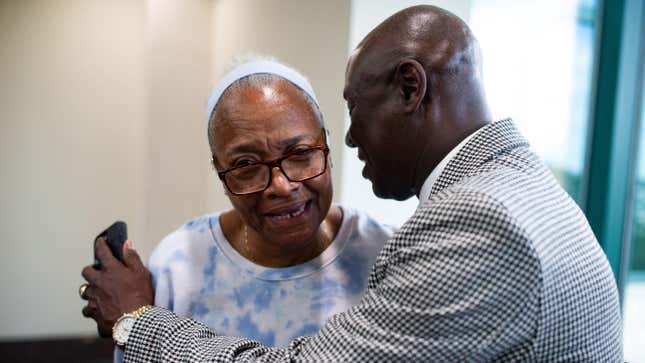
In 2018, Marsha Ervin, a Florida Black woman, was released from prison after finishing her prison sentence. In 2020, she voted in the presidential election. In 2022, she voted again in the primary election.
Based on a new state law that was passed in November 2018, Amendment Four, Ervin assumed that she could vote after she completed her full prison sentence. But what she did not know was that in 2019, Gov. Ron DeSantis signed a bill that would lengthen the time it would take for a convicted felon to gain their right to vote back.
Amendment Four specifically states that people with past felony convictions can get their full right to vote back after they complete their full sentence, which does not include people convicted of murder or sex crimes. The bill DeSantis signed would only restore a felon’s voter rights after the person paid all the fines and fees that came with their felony conviction.
Not knowing this information, Ervin was arrested a month ago and charged with submission of false voter registration and two felony counts of voting as an unqualified elector. If convicted, she faces up to five years in prison, according to CNN.
But in an attempt to have the charges dropped, civil rights attorney Ben Crump and the Tallahassee NAACP have come to Ervin’s defense. In a Tuesday press conference, Crump said, “This is about voter intimidation.”
More from CNN:
An inspector interviewed Ervin in October 2022. Ervin told the inspector that “she believed she was allowed to vote because she was told she could when she was released from prison,” and she “remembered it being reported that felons could now vote in Florida from the reports on television,” according to the affidavit.
“Ervin also opined that she would not have voted if she believed it was against the law because she just got out of prison and had begun probation,” the investigator wrote.
Mutaqee Akbar, told CNN, “There is no other evidence that she had the intent to commit fraud. To a layman, completion of a sentence means when you are released from custody. She had no idea that she needed to complete her probation as well in order to vote.”
Ervin’s case is receiving so much attention because it represents a larger issue that is happening in Florida. Many Democratic leaders have claimed that Republican lawmakers have put in place these “confusing systems” of voter restoration to confuse Black voters. This goes along with the many other restrictions Gov. DeSantis has put in place to make it harder for Black citizens in Florida to vote, not only convicted felons. He has waged an attack on Black voters during his time as governor
Akbar has also claimed that cases like Ervin’s are an attempt by DeSantis to intimidate felons who want to vote after their sentence is completed.

